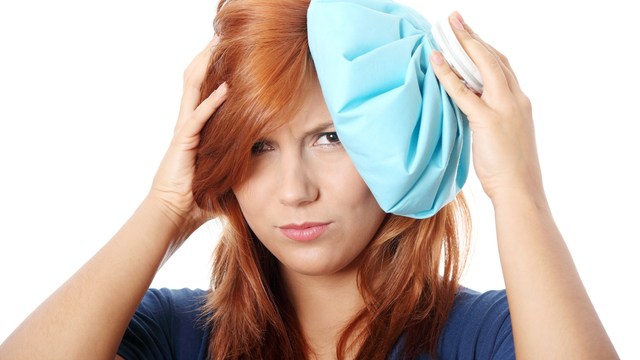 B-D-S/PhotoSpin
B-D-S/PhotoSpin
We know to leave wounds alone while they heal. However, at certain points in the healing process they can really itch and drive you crazy. Why does that itch happen and what are you supposed to do about it?
The first thing to understand is that wounds heal in four stages.
The phases of wound healing are:
1) Hemostasis - clotting and stabilizing of the wound with fibrin and platelets.
2) Inflammation -lasts up to four days. Redness, swelling and warmth occur as white blood cells arrive and prepare to fight infection.
3) Proliferation or Granulation -starts four days after an injury and lasts up to 21 days. The framework of the wound healing is created using collagen and fibroblasts as they prepare for wound contraction or closure. Specialized keratinocytes form the protective outer layer.
4) Remodeling or Maturation - this stage can last up to two years where the internal tissue produces more tensile strength. The wound is vulnerable and susceptible to re-injury during this time, which is why a newly healed area easily can become re-damaged.
The itchy sensation you feel when a wound heals is coming from sensitive nerve cells that are reacting to both chemicals being released and structural stretch on the surrounding skin and wound tissue.
According to Skincare.lovetoknow.com, histamine is released during an injury in response to trauma and the introduction of bacteria. This type of histamine release occurs in the second stage of healing to trigger cells that fight an infection, and to bring in the new cells that will help build the tissue to close the wound.
The Naked Scientist explained an additional theory about why the itch also occurs during the third stage of healing.
Dr. Chris says that it's only recently been discovered that there are itch-specific nerve fibers in the skin. Their sole job is to signal to the spinal cord that an area of skin is being stimulated, which is perceived by the brain as itchy.
In the third stage of healing, the proliferation stage, a wound heals and closes by laying down cells that flow downward towards the base of the wound. Here they unite with other cells that will create the framework to help close the wound.
As those cells contract and pull the wound closed, the mechanical pull on the skin stimulates the sensation of itchiness.
“Therefore, a wound that's closing up will feel itchy for mechanical and chemical reasons which are precisely the reasons why those nerve cells get stimulated in the first place.”
What to do about an itchy wound
Clearly you don’t want to disturb a healing wound or it has to rebuild any areas that have been disrupted again, prolonging wound healing.
1) Make sure the surrounding skin is not overly dry by using a moisturizer to rehydrate it.
2) Gently wash with soap and warm water and pat dry to remove any old cells that have sloughed off and contributed to your itching.
3) Use a cool or cold compress with a clean towel wrapped around a gel pack or bag of frozen peas. Do not leave on longer than 20 minutes at a time.
4) Avoid irritation of clothes or shoes rubbing against the area.
5) Over-the-counter itch medication such as Benadryl or cortisone can sometimes help. Follow up with your doctor if the itch persists or worsens, and/or increased signs of redness and swelling return. It is possible that an infection is brewing and will need medical attention.
Sources:
4 Stages of Healing. Curad.com. Retrieved September 27, 2014.
http://www.curad.com/firstaid/stages.asp
Why do healing wounds itch? The Naked Scientists University of Cambridge. Sun, 13th Mar 2011. Retrieved September 27, 2014.
http://www.thenakedscientists.com/HTML/questions/question/2967
Why Do Wounds Itch When They Are Healing? Lovetoknow Skincare. Retrieved September 27, 2014.
http://skincare.lovetoknow.com/Why_Do_Wounds_Itch_When_They_Are_Healing
How Do I Treat an Itchy Incision? Wisegeek.com. Retrieved September 27, 2014.
http://www.wisegeek.com/how-do-i-treat-an-itchy-incision.htm#didyouknowout
Michele is an R.N. freelance writer with a special interest in woman’s healthcare and quality of care issues. Other articles by Michele are at http://contributor.yahoo.com/user/499625/michele_blacksberg.html
Edited by Jody Smith





Add a Comment2 Comments
does not make sense. I believe,being somewhat a scientist, that every thing our body does or has is there for a reason. ex. eyebrows...? channel sweat and debris away from the eyes and some folks have impressive ones and some are down right attractive. i agree that wounds should avoid irritation so what purpose the itch? well...without the itch u would hardly notice the wound. if said wound got infected you may not notice it. I cannot see my big butt and may not notice early signs of infection i.e. redness 1st then swelling and, next, pain. Pain we notice but by then we could be septic i.e. fever, chills, rigors (being the big brother of chills) and myalgias. and then, depending our state of health, any of the following-hospital, icu and/or morgue. what does not make sense is to say that itching is just a casual byproduct of wound healing-i believe the purpose itching serves is vigilance
August 7, 2016 - 1:39pmI'm just sayin'.
dennis dalphond
This Comment
thanks for the good information
October 27, 2014 - 5:45amThis Comment